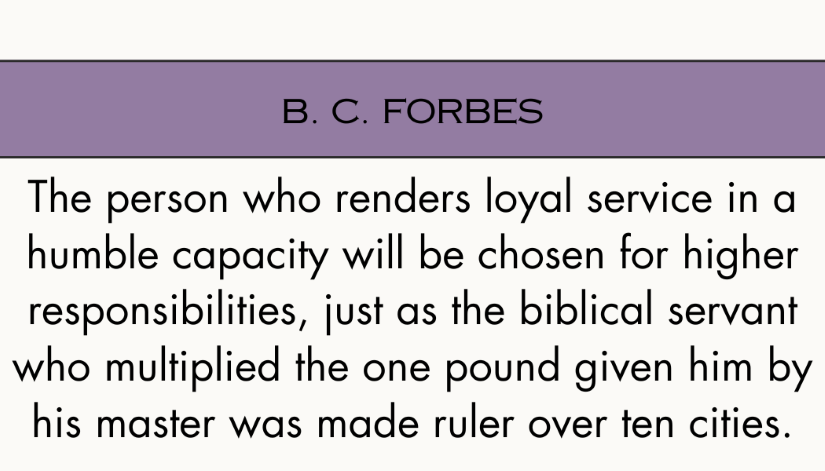When Helping Hurts: Thwarting the Savior Complex
Mark 10:45 affirms, “For even the Son of Man did not come to be served, but to serve, and to give His life as a ransom for many.” However, in our earnest desire to help, we can sometimes fall into the trap of the savior complex, where our good intentions lead to unintended consequences. Today we will discuss how we can avoid the savior complex and the importance of serving with humility and recognizing our limitations.

Defining the Savior Complex
The savior complex is a state of mind where an individual believes they are obligated to save others, often to the detriment of both parties involved. It places an unrealistic burden on us and undermines others' ability to grow and learn. In many cases, this mindset stems from good intentions- a misguided sense of altruism. It may even develop from a genuine desire to help but can quickly escalate into a pattern of dominating others' independence. Psychologically, the savior complex arises from a desire for validation, control, or believing that others are helpless without your intervention. Biblically, this attitude sharply contrasts with the model of service presented by Jesus, who demonstrated that we are called to serve with humility, love, and a recognition of our dependence on God. A person with a savior complex may inadvertently place themselves in a role that only God can truly fulfill, but rather than seeking to be the savior, Christians are called to be servants and serve in a manner that doesn’t attempt to overthrow God from His responsibility.

Identify the Telltale Signs
Identifying the signs is the first step in addressing our motives and behaviors, and it allows us to change our approach and help others with humility and respect for their autonomy.
Signs to watch for:
- Feeling emotionally drained or resentful when others do not follow our advice or show appreciation.
- Feeling disappointed or hurt when others do not express gratitude for our help.
- Neglecting our own physical, emotional, and spiritual needs while prioritizing the needs of others.
- Frequently crossing personal boundaries in the name of helping, without considering the impact on others' autonomy.
- Seeking validation or recognition from others for our efforts, instead of focusing solely on their well-being.
- Deriving self-worth from helping and assisting others rather than from a healthy and balanced life.
- A tendency to feel personally responsible for, or constant preoccupation with solving others’ issues.

Examples of the Savior Complex in Action
Consider if any of the following examples resonate with you:
- John frequently advises his colleagues on personal matters, even when they don’t ask for help.
- Emma volunteers to manage every aspect of a community project, ignoring others' offers to assist.
- David insists on solving problems his way, dismissing others' input or solutions.
- Rachel feels overwhelmed and emotionally exhausted because she’s constantly dealing with others' crises.
- Tom views himself as a martyr for always sacrificing his needs for others, expecting recognition and gratitude.
- Jessica unconsciously makes her friends dependent on her by always offering to do things for them rather than empowering them.
- Chris becomes frustrated when the people he's helping don't improve or change as quickly as he'd like.
- Mary begins to feel resentful towards those she helps, feeling unappreciated and overburdened.
- Alex takes over projects or tasks from others, believing they can’t do them as well as he can.
- Megan puts her own life goals on hold to focus on solving other people's problems.
- Brian sees his friends' problems as his own, experiencing their issues as personally as they do.
- Peter believes his guidance is always correct and disregards any feedback or differing opinions.
- Susan commits to helping so many people that she has no time left for herself or her family.
- James feels guilty saying no to any request for help, stretching himself too thin and becoming ineffective.
- Sarah constantly seeks out people in crisis to rescue, deriving her self-worth from being needed.
- Lydia amplifies others' problems to feel more essential in resolving them, escalating situations unnecessarily.
- Ben guilt-trips others into accepting his help, making them feel indebted and obligated to him.

Biblical Examples of Humble Service
The Bible provides numerous poignant examples of humble service that are in stark opposition to the savior complex.
The following examples remind us that genuine service involves putting others' needs before our ego, following the example set by Christ Himself:
- Jesus: He washed His disciples' feet (John 13:1-17) and sacrificed His life for humanity (Philippians 2:5-8) without seeking personal recognition or control.
- Paul: He tirelessly spread the gospel and cared for the churches (1 Corinthians 9:19-23), enduring hardships with humility and reliance on God.
- Joseph: Despite being sold into slavery by his brothers, Joseph faithfully served Potiphar (Genesis 39:1-6) and later served Egypt as a wise administrator during a severe famine (Genesis 41:41-44).
- Esther: She risked her life to save her people, the Jews, by approaching the king without being summoned, demonstrating courage and selflessness (Book of Esther).
- Ruth: She selflessly cared for her mother-in-law Naomi (Ruth 1-4), demonstrating loyalty and compassion without seeking personal gain.
- Barnabas: Known as the "son of encouragement," Barnabas generously sold his land to support the early church and mentored Paul (Acts 4:36-37; Acts 9:26-27).

Strategies for Humble and Effective Service
To humbly serve and avoid falling into the trap of the savior complex, consider:
- Rather than trying to rescue others, turn your attention to empowering them to find their own solutions and strengths.
- Regularly pray for wisdom and discernment.
- Establish clear boundaries in your relationships and commitments. Learn to say no when necessary to avoid overextending yourself.
- Embrace teamwork and shared responsibility.
- Listen attentively to others' needs and concerns without immediately offering solutions.
- Surround yourself with trusted friends or mentors who can provide honest feedback and accountability regarding your helping behaviors.

Most Importantly, Focus on God’s Role
The ability to overcome the savior complex hinges on the ability to shift our focus from ourselves to God. It requires that we recognize and trust His supremacy and will; relinquishing the drive to serve in an unhelpful manner and allowing God to work through us. Acting as His instruments liberates us to serve with a joyful heart, knowing that our efforts are part of His greater plan to bring glory to His name and spread His love in the lives of those around us.
When we focus on God’s role:
- We trust that God has a plan and purpose for each person's life, including their struggles and challenges.
- We seek God’s guidance through prayer, asking for wisdom and discernment in how best to support and encourage others.
- We acknowledge that God is in control and that our role is to obediently follow His lead.
- Our goal shifts from fixing problems to pointing others to God, encouraging them to rely on His strength and seek His solutions.
- We recognize our limitations.
- Understand that God works in His timing and ways, often beyond our understanding.
- We let our actions and motives reflect His love and compassion.

Summing It Up
The savior complex can subtly distort our intentions, leading us to seek personal validation or control rather than genuinely serving others out of love and compassion. Helping others without falling into the savior complex requires a deliberate commitment to humility, self-awareness, and trust in God. As we strive to emulate Christ’s example and surrender ourselves to God’s will, our participation in His work will be founded in love and bring honor to His name.
- Torrance Community Church of Christ


















